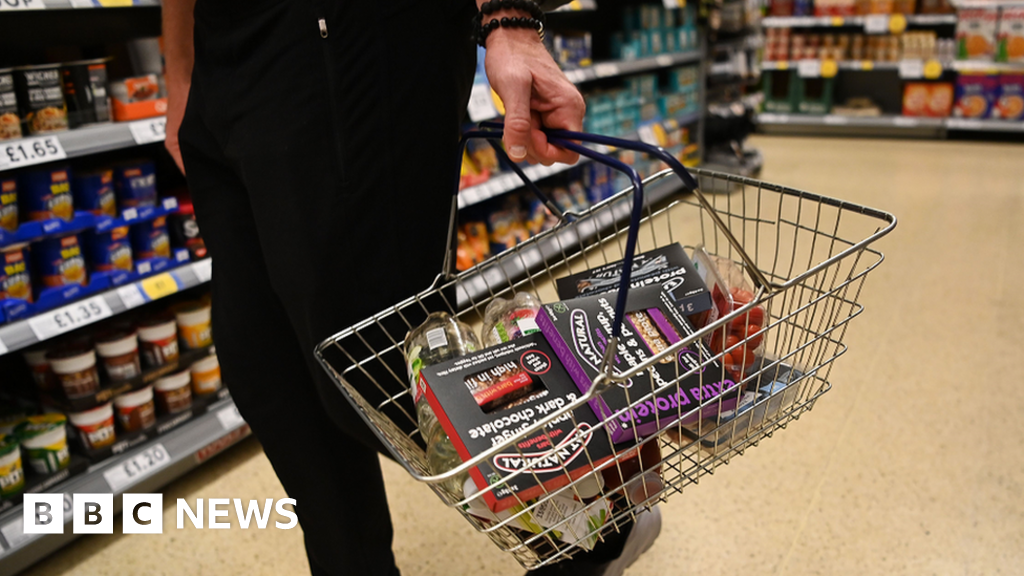Food Price Cap Will Not Make A Difference - Retailers

Government plans to introduce a cap on the price of basic food items will not help tackle the rising cost of living, retailers have warned.
The British Retail Consortium (BRC) said the measures would not make a "jot of difference" and could thwart efforts to cut inflation.
A voluntary agreement with major retailers could see price reductions on basic food items like bread and milk.
There are no plans for a mandatory price cap, No 10 sources have stressed.
The idea of a cap or freeze on basic food items, as first reported by the Daily Telegraph, is said to be at the "drawing board stage".
Supermarkets are expected to be allowed to select which items they would cap and only take part in the initiative, modelled on a similar agreement in France, on a voluntary basis.
But there is some doubt over what impact a price cap would have, with the scheme facing criticism from retailers and opposition MPs.
Labour's shadow work and pensions secretary Jonathan Ashworth compared the plans to pricing controls introduced by Conservative prime minister Edward Heath in the 1970s.
The BRC, a trade association which advocates on behalf of more than 200 retailers, said the government should focus more on cutting red tape so resources could be "directed to keeping prices as low as possible", rather than "recreating 1970s-style price controls".
"This will not make a jot of difference to prices," Andrew Opie, director of food and sustainability at the BRC said.
"High food prices are a direct result of the soaring cost of energy, transport, and labour, as well as higher prices paid to food manufacturers and farmers," he added.
"As commodity prices drop, many of the costs keeping inflation high are now arising from the muddle of new regulation coming from government."
Health Secretary Steve Barclay told BBC One's Sunday with Laura Kuenssberg programme that the policy was "not about any element of compulsion".
"The government is working constructively with supermarkets as to how we address the very real concerns around food inflation and the cost of living, and doing so in a way that is also very mindful to the impact on suppliers," he said.
It comes days after Sainsbury's boss Simon Roberts denied that his supermarket had been profiteering.
He told the BBC that supermarkets had spent money to "battle inflation" and avoid passing all of the rising costs onto consumers.
The Consumer Prices Index of inflation was 8.7% in the year to April, with food prices rising by 19.1 % in the same 12-month period - its second highest rate in 45 years.
Soaring prices of some food products have meant inflation has not come down by as much as many predicted.
From Chip War To Cloud War: The Next Frontier In Global Tech Competition
The global chip war, characterized by intense competition among nations and corporations for supremacy in semiconductor ... Read more
The High Stakes Of Tech Regulation: Security Risks And Market Dynamics
The influence of tech giants in the global economy continues to grow, raising crucial questions about how to balance sec... Read more
The Tyranny Of Instagram Interiors: Why It's Time To Break Free From Algorithm-Driven Aesthetics
Instagram has become a dominant force in shaping interior design trends, offering a seemingly endless stream of inspirat... Read more
The Data Crunch In AI: Strategies For Sustainability
Exploring solutions to the imminent exhaustion of internet data for AI training.As the artificial intelligence (AI) indu... Read more
Google Abandons Four-Year Effort To Remove Cookies From Chrome Browser
After four years of dedicated effort, Google has decided to abandon its plan to remove third-party cookies from its Chro... Read more
LinkedIn Embraces AI And Gamification To Drive User Engagement And Revenue
In an effort to tackle slowing revenue growth and enhance user engagement, LinkedIn is turning to artificial intelligenc... Read more

